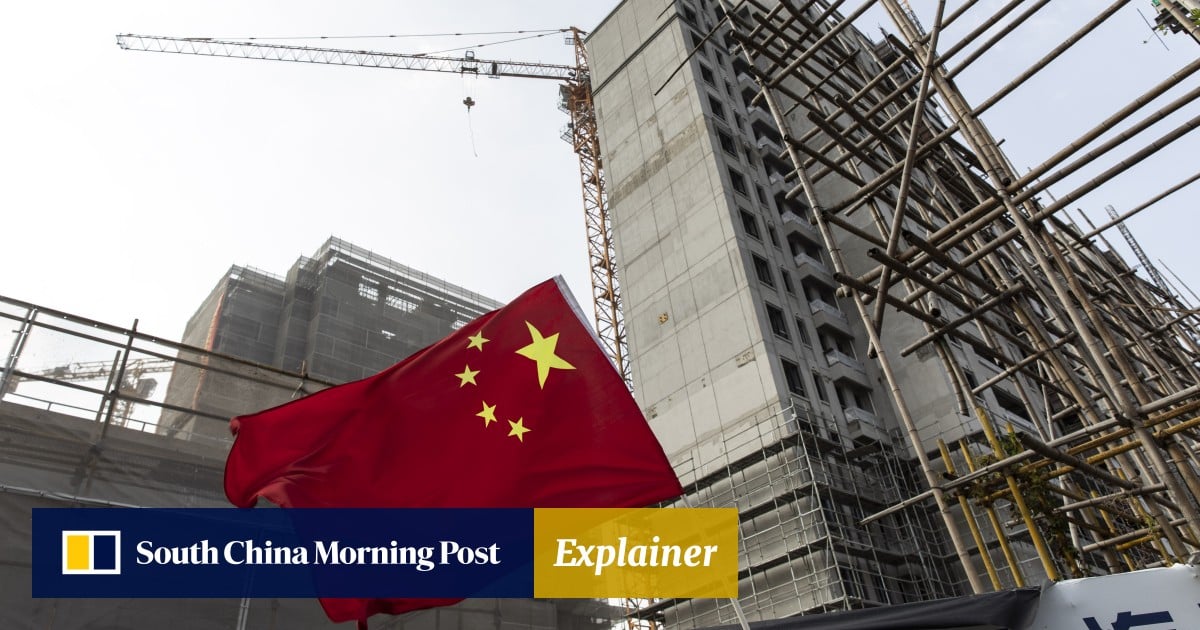Analysts speculate that “ultra-long-term” could refer to durations of 30 to 50 years. And the “special” nature of the bonds means that the funds may be designated for some very specific purposes and/or used in a one-off manner.
Beijing has set its deficit-to-GDP ratio at 3 per cent for 2024, with the government deficit set to rise by 180 billion yuan (US$25 billion) from 2023.
However, the 1 trillion yuan worth of funds raised under the new arrangement is “off-budget”. As such, the issuance of the ultra-long-term special bonds will lead to an overall increase in official government debt, but it will not be included in the official fiscal deficit.
Zheng Shanjie, who heads the National Development and Reform Commission (NDRC), which is China’s top economic planner, said the funds will primarily support specific areas: scientific and technological innovation, integrated urban-rural development, coordinated regional development, food and energy security, and high-quality development of the population.
When did China last sell ultra-long special bonds?
China has been selling long-term government bonds since 2001, and the bond market has already seen them come with investment terms of 15 years, 20 years, 30 years and 50 years.
The average yield on a 50-year Chinese sovereign bond was 3.162 per cent, based on the last auction by the Ministry of Finance in December.
But China has sold “ultra-long-term special government bonds” of a significant scale on only three occasions.
Finance authorities sold them to help recapitalise the “big four” Chinese state banks – the Industrial and Commercial Bank of China, Bank of China, China Construction Bank and the Agricultural Bank of China – in response to the 1998 Asian Financial Crisis.
It also sold such bonds to inject funds into a sovereign wealth fund, the China Investment Corporation, when it was set up in 2007. And in early 2020, the bonds were used to fund pandemic-related fiscal support.
China vows to break down barriers to aid recovery, stimulus call continues
China vows to break down barriers to aid recovery, stimulus call continues
Why has Beijing decided to sell ultra-long special bonds?
Analysts suspect that a major reason for these bonds is the growing debt risks facing many of China’s local-level governments, which have traditionally been at the forefront of carrying out economic stimulus.
Over the last few years, default risks have risen significantly among so-called local government financing vehicles (LGFVs) – platforms used by local governments to borrow off-budget to mainly fund infrastructure projects – triggering concerns that large-scale LGFV defaults could have a contagion impact on the country’s state-dominated financial system.
Louise Loo, lead economist at Oxford Economics, estimated that a total of 4.7 trillion yuan worth of onshore LGFV debt would mature this year, a record high.
Given China’s prolonged property downturn, still-weak consumer and business sentiment, and LGFV deleveraging, there is a rising need to pursue economic stability in the coming years.
As China’s economic growth engine shifts away from mainly relying on property development, the central government has recognised that the economy needs continuous fiscal support to sustain its transition, according to a note by Guosheng Securities on March 10.
“Local government debt pressure continues to increase, and the central government increasing its leverage is a general trend, whether it be through special treasury bonds or other quasi-fiscal means,” Guosheng Securities said.
What are the pros and cons of issuing these special bonds?
Selling a sizeable amount of ultra-long-term bonds could give investors a confidence boost, improve the overall debt structure without raising short-term debt pressure, and help reduce funding costs in the public sector. But there also are risks surrounding the one-off nature of the bonds, and the possibility of low returns from projects that the proceeds would go into.
Analysts at Huatai Securities suspect that the first auction of these special bonds could start in the second quarter of this year, and they might be sold along with other on-budget government bonds, which has the potential to add liquidity pressure in China’s bond market.
“Assuming that all of the new 1 trillion yuan [in special bonds] added this year will have investment terms of 30 years or more, the total issuance scale of ultra-long-term bonds may be 1.4 trillion yuan, which is about 3.6 times the average issuance volume in the past three years and 3.1 times the average issuance volume in the past five years,” Huatai Securities said in a note on March 7.
China should be more transparent about economic data, government adviser says
China should be more transparent about economic data, government adviser says
As of January, the main holders of China’s treasury bonds were large state banks, accounting for about 70 per cent of total outstanding bonds, but banks usually do not hold bonds with ultra-long maturities, Huatai Securities added.
“Insurance and other types of investors may be the main targets of ultra-long-term bonds, but currently the total size of treasury bonds held by the two groups is only 2.6 trillion yuan,” Huatai said. “If an additional 1.4 trillion yuan is sold this year, it remains to be seen who will be absorbing the supply.”
In any case, many analysts say the People’s Bank of China will likely need to step up the use of its monetary tools to ensure success in selling the ultra-long special bonds.
Yuan Haixia, executive director of China Chengxin International Research Institute, said that for the bonds to be effective, there is a need to “strengthen cross-regional and cross-department coordination” and to avoid projects that may deliver low returns.
“[The government should] avoid unclear responsibilities and low efficiency caused by numerous participating entities, and effectively promote project implementation,” Yuan said in a note on March 8.
